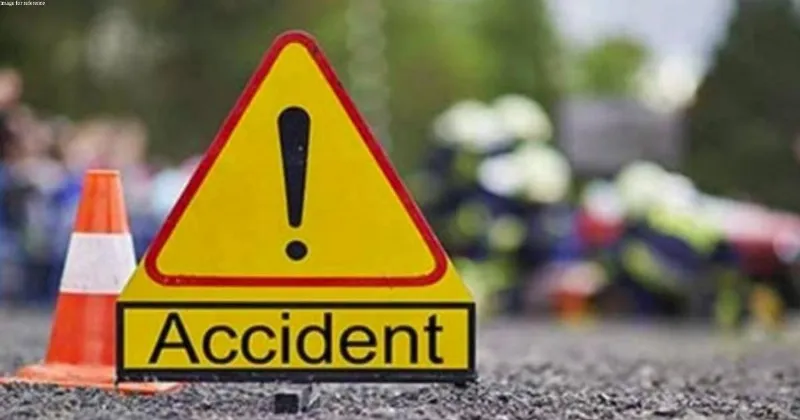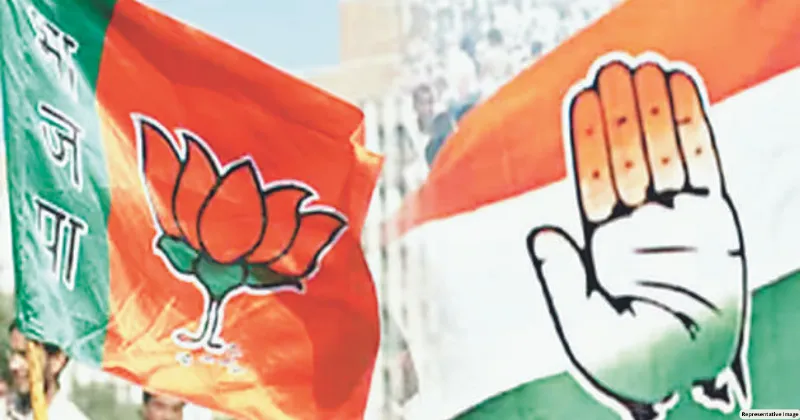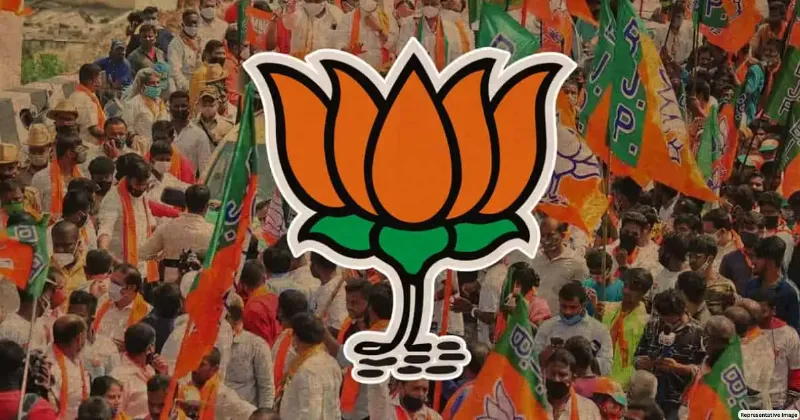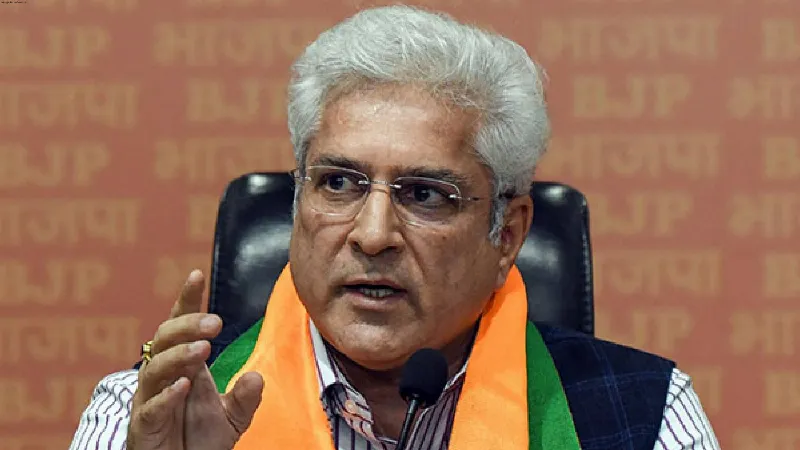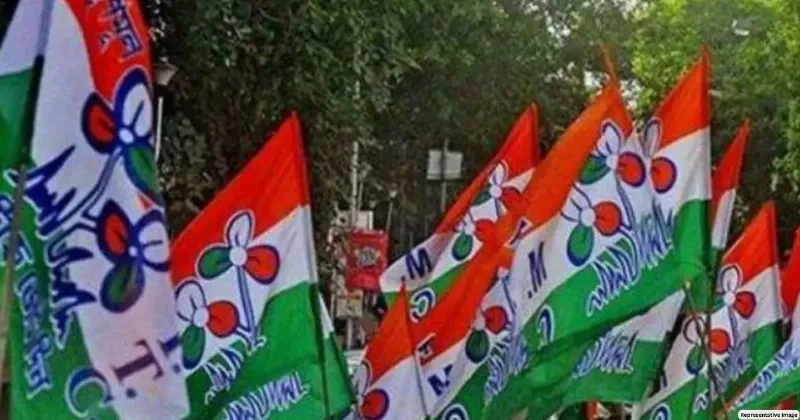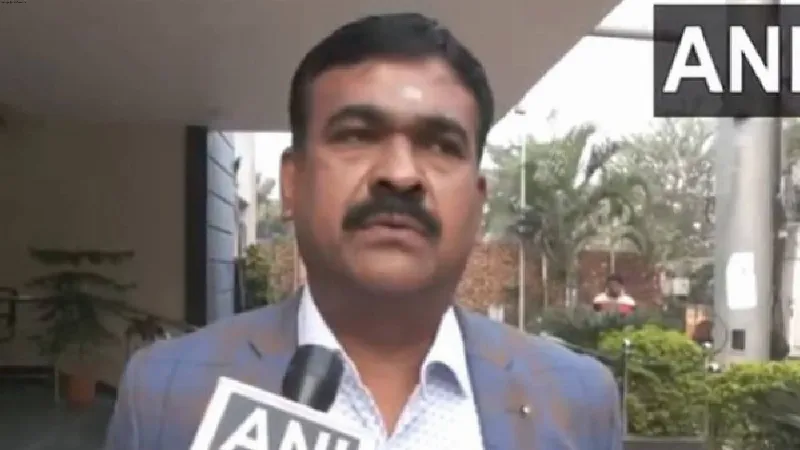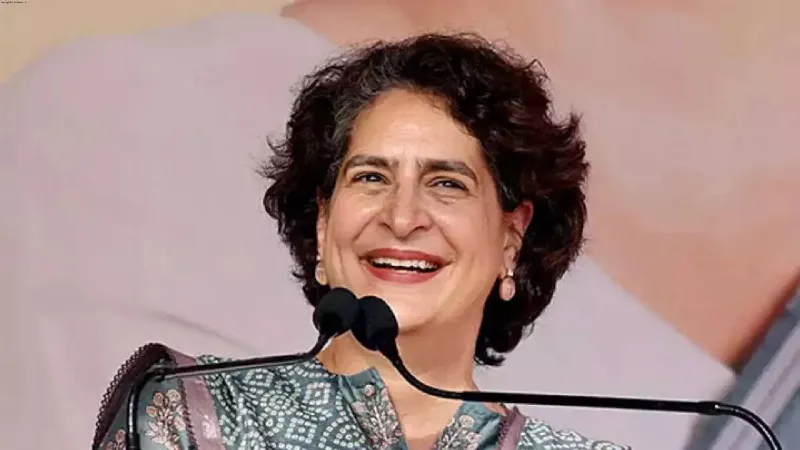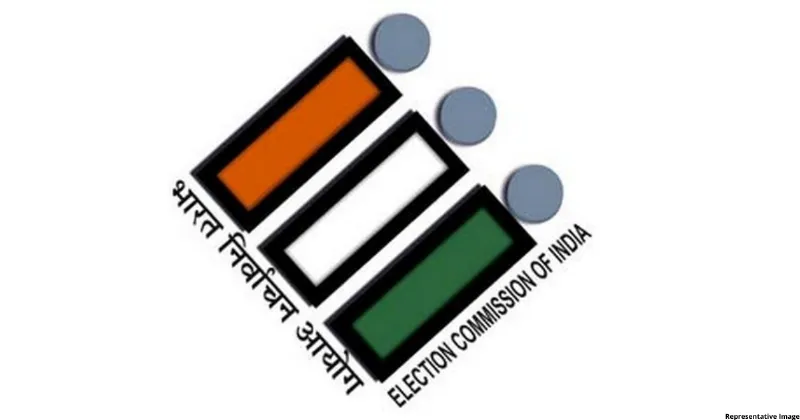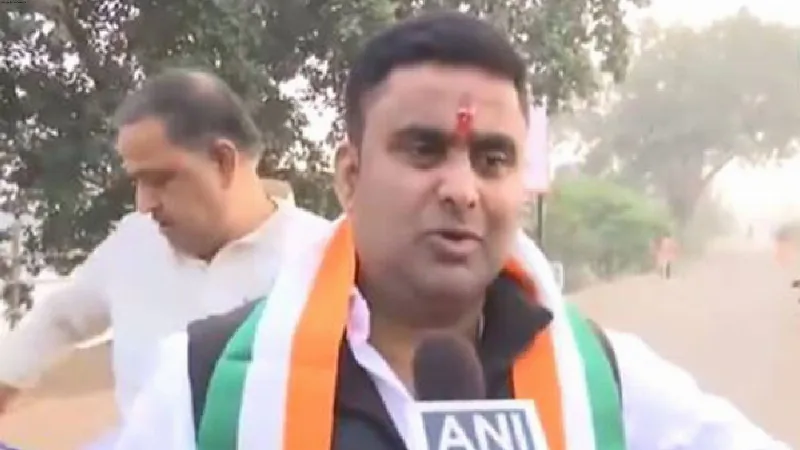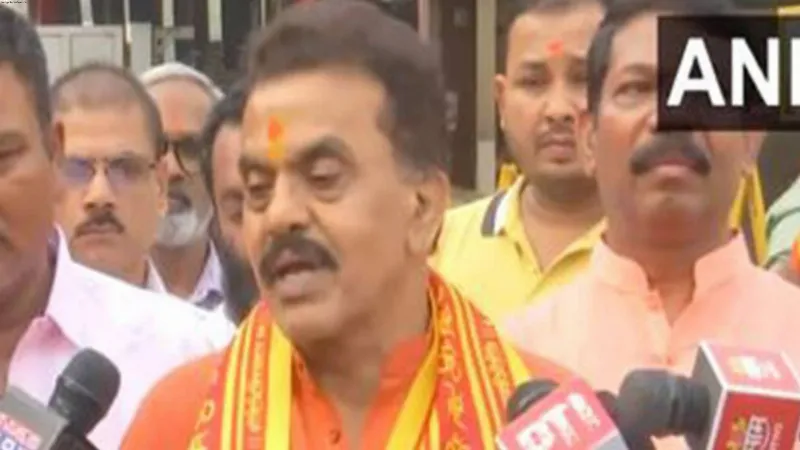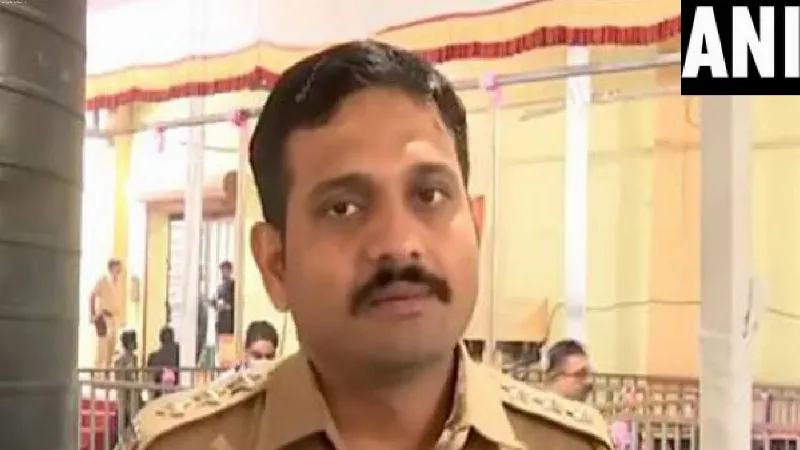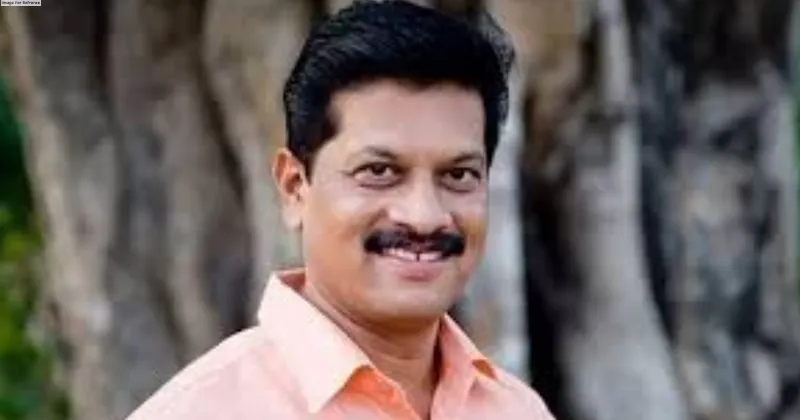Latest News
PM MODI’S WORKING ABILITY & COMMITMENT TO NATION HAS NO SECOND: GUV GC KATARIA

In a tete-a-tete with Dr Jagdeesh Chandra — CEO and Editor-inChief, Bharat24-Vision of New India and First India; CMD, First India News, Governor of Assam Gulab Chand Kataria shares his life experiences. Governor Kataria also shares his first meeting with PM Narendra Modi, how the Prime Minister works untiringly for the people and how he ideated to connect the public in a string and remind them of their heritage. Excerpts… (Part-I)
- When you were a teacher, did you ever think that you would enter into politics one day?
Gulab Chand Kataria: No, I had not thought of that. But I had definitely got associated with the Sangh and I thought that there can not be any coordination between the work of the Sangh and state work. I started working in the Vidhyapeeth from the very first day and I never turned towards government job. I am from a simple family and honestly, one cannot think about reaching till this level in politics.
- So you entered politics from the ‘shakha’?
No, I didn’t enter politics from shakha. In fact, after my first year in college, I started working and studying as well. And after I completed my B.Ed, I was selected as a Geography professor by Vidhyapeeth at Jhadol, which is a tribal area. I worked as a teacher there for three years, but after six months of starting work, I started holding Sangh’s shakhas which carried on for a long time. Due to this, senior leaders like Gulab Singh ji used to come there and I used to live in Pradhan Sahab Bhairon Singh ji Shekhawat’s home. When I used to wear a necker and go for the shakha, he did not used to like it. In the beginning he did not say anything, but when the election for 1971 was announced and candidates of Chahuta were contesting, and after the election, my name was being taken at the local level, so he asked me to either work full time for the Sangh or to continue with my job. At that time I told him that right now I am at an age where I can work for the Sangh, so if you deem it fit, you can keep me or remove me. So after three years of work there, on the day when school was closing for summer vacation, on May 15, he handed me a letter saying my services were no longer needed. I returned without any grudge in my heart and I never felt any disrespect towards him. The reason for this was that in such an interior area people used to go and teach kids under the light of lanterns, in that tribal area, so I had immense respect for their service belief towards the society.
- So, when did you enter active politics?
That I entered in much later. After I lost my job, I thought that I should study further. However, later I joined in a primary school at Ayad, but when I appeared for an interview of a College, they became miffed with me saying that I went for the interview without telling them which, according to them, meant that I did not have any inclination of spending a long time at the school. Then I thought that a private job would be difficult so I studied law. My salary could not suffice because there was burden of the entire family. So after my law college would end for the day around 9:30 pm, I used to go and teach two tutions and around 11:30 pm I would reach home. And then I would leave home at 5:30 am for Sangh’s shakha. So, in a way, I did a lot of hard work, but my idea was that now that I have connected myself to the Sangh, and when even the pracharaks, even after getting their degrees and gold medals, carry a just a bag to work for the nation, then I too shall give importance to this work.
- So when did you contest your first election?
I contested in 1977. When I joined LLB, I was given the responsibility of the city in the Sangh and from there I was included in the Vidhyarthi Parishad. So while studying in Law College I used to work for Vidhyarthi Parishad. Perhaps my luck was good that in 1974, Vidhyarthi Parishad won in all Colleges and Universities in Udaipur, so in a way people started understanding my command. And after sometime, in 1975, the Emergency was imposed and since I used to work for Sangh, several raids were conducted to arrest me. I worked for two months but then one day I was caught and put behind bars. I stayed behind bars for about eight and a half months and my case was in DIR and I was acquitted, so I came out of jail and started practising as an advocate. I was only starting up when elections were announced. We thought that now that election has been announced, so all the senior leaders who have been released from the jail after eighteen or nineteen months, then should be publicly felicitated. I took my group together and said that we should do something like this. People told me why I was looking to engage in such stupidity since I have come out of jail after so many days but I said no something has to be done. So, we held that felicitation program. A huge crowd came in that meeting, much like that assembled in Atal ji’s meetings. So it appeared that people have immense sympathy in the hearts of people who have gone through that phase in the Emergency.
- You have been an eight time legislator and one time MP. Did you lose any election?
Yes. I lost two elections. One after Indira Gandhi ji’s death and in the Assembly election held after that I lost by 1,120 votes and Girija Vyas won from Udaipur seat opposite me. Then in 1989, I went to Lok Sabha and when the election was to happen, Rajiv Gandhiji was assassinated and at that time Rajasthan had only ten seats. At that time too Girija Vyas ji contested against me and she won the Lok Sabha election opposite me by about 21,000 votes. After that I started working with Bhairon Singh ji and he worked to further carve me as a politician in that tribal area.
- So, when did you meet Narendra Bhai for the first time?
When Narendra Modi was a pracharak in RSS and had started handling the work of BJP in Gujarat, at that time I used to go to Gujarat for work from Udaipur, so I met him there. Then he used to work in the organisation so he came to Rajasthan as well. Then he took out a Tiranga Yatra with Murli Manohar ji from Kerala and he unfurled the Tricolor at Lal Chowk. At that time I was a Lok Sabha member. So we went till there and after that my personal connect with him grew further. And then he was working as general secretary and was also an incharge of Rajasthan during Om Mathur ji’s time and thus he used frequently visit the state.
- As a citizen, how do you rate Narendra Modi as a Prime Minister?
See, I have an experience of 40-45 years. I have seen multiple Prime Ministers of the nation including Atal ji, but I don’t know, this man’s working and ability has no second. This is the first PM, I have seen who has never taken leave of one day, hasn’t rested for one day and without stopping even for a day, continuously has kept working. But the way he has lived his life. In politics, due to one or the other reason, be it friends or family, one’s name may get mugged or tarnished, but this individual’s life has been devoid of any such instance. Secondly, his life revolves around the nation and what can we do as service to nation. I have seen him as Chief Minister of Gujarat and when Bhandari ji was Governor there I used to go there and then for organisational meetings too I used to go there and at that time I used to meet him.
- In 2014, he started the ‘Mann Ki Baat’ program as a direct connect with the public. How do you visualise that program?
Definitely, this was a first of its kind of program that I have seen happen by a sitting Prime Minister. he thought about the program and through it, what he feels about the nation, he says that to the public and what the public feels about the nation, he interacts on that aspect too. Connecting small and big, all groups with him and to listen to them and to bring forth those who have done good for the nation in however way they have, even if it is a woman, he has done that. For example there is a village in my area where the villagers cleaned a historic Bawri, so PM Modi spoke on that in his ‘Mann Ki Baat’. Based on ‘Mann Ki Baat’, he brought the people together during the Covid crisis through the ‘Thali and Taali’ campaign. And then, even though there was time to bring the vaccine, and people said many different things, yet he went ahead unperturbed and brought the vaccines. And in that too, he ensured that a proper chain is followed. First those who protect us were vaccinated and then a proper chain was followed so there was no fight for it. So the system with which he took it forward is commendable. In a country as huge as India and to get the people vaccinated twice, is no mean feat and he got it done without any feeling of difference in any person. So this shows the way the man works. Also, in my life, I saw it for the first time, either it was in Atal ji’s time to connect all villages with roads; whatever scheme and programs that he (Narendra Modi) has brought, it has touched every person without discrimination be it cleanliness drive, or Ujjawala scheme, or opening of bank accounts or PM Awas or Har Ghar Jal scheme, all this is cent percent a brainchild of a person who wants to connect everyone without any discrimination. This I really liked. He always encouraged good work and when ever he came across any shortfalls in us, he would point it out. He has introduced many changes in our organisation as well. To top it, he has decision making power too.
- Another aspect of ‘Mann Ki Baat’ has been that it has brought forward the grassroot change makers.
Definitely. It is amazing. People who have played a huge role in the nation’s freedom struggle and those too from the pre-independence time, about whom not much is known by general public, but who played a vital role; I don’t know how he found about them and researched about them, he brought such heroes forward about which no one had even thought of. Now look at Mangarh Dham and the way he highlighted Govind Guru. In this way, even those who played the smallest of roles, PM Modi has brought their names to the fore. He did not see if one is rich or poor. If a woman from Kerala has done something good, he appreciated that person in his ‘Mann Ki Baat’. So anyone who has done any good work has been highlighted. Even students, who become tensed over examination, he has held talks with them to ease that tension and drive home the point that examinations and studies, though important, are not everything in life as a person could be made for other works too. He joined people with the slogan local for vocal, Khadi, millets. So in a way, he has attempted to connect Indians with out heritage.
TO BE CONTINUED…
During the show #JCWithAssamGovernor trended top All-India on Twitter

